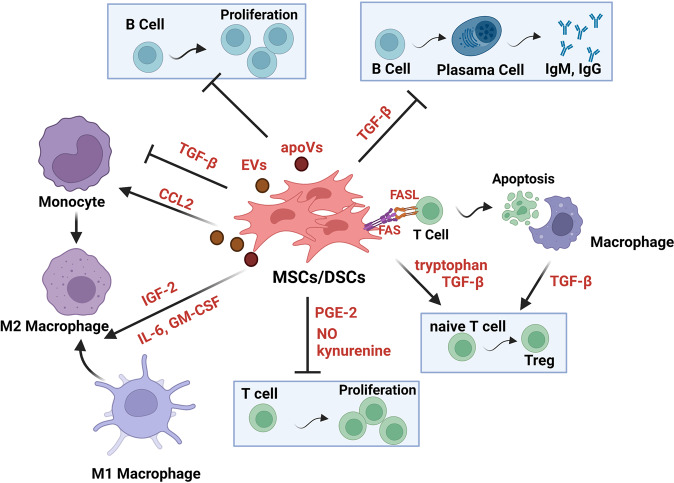Fig. 2.
The main routes through which MSCs/DSCs exert their immunoregulatory effects. MSCs/DSCs exert their immunomodulatory effects by producing metabolites, cytokines, growth factors, chemokines, extracellular vesicles, and apoptotic vesicles and T-cell death-mediated immunoregulation. MSCs/DSCs can suppress T-cell and B-cell proliferation, promote naive CD4+ T cells to differentiate into Treg cells, instruct macrophages to acquire an immunosuppressive phenotype, or inhibit the production of IgM and IgG. In addition, MSCs/DSCs induce T-cell apoptosis and subsequently trigger macrophages to produce TGFβ, which induces the differentiation of Tregs and immune tolerance

